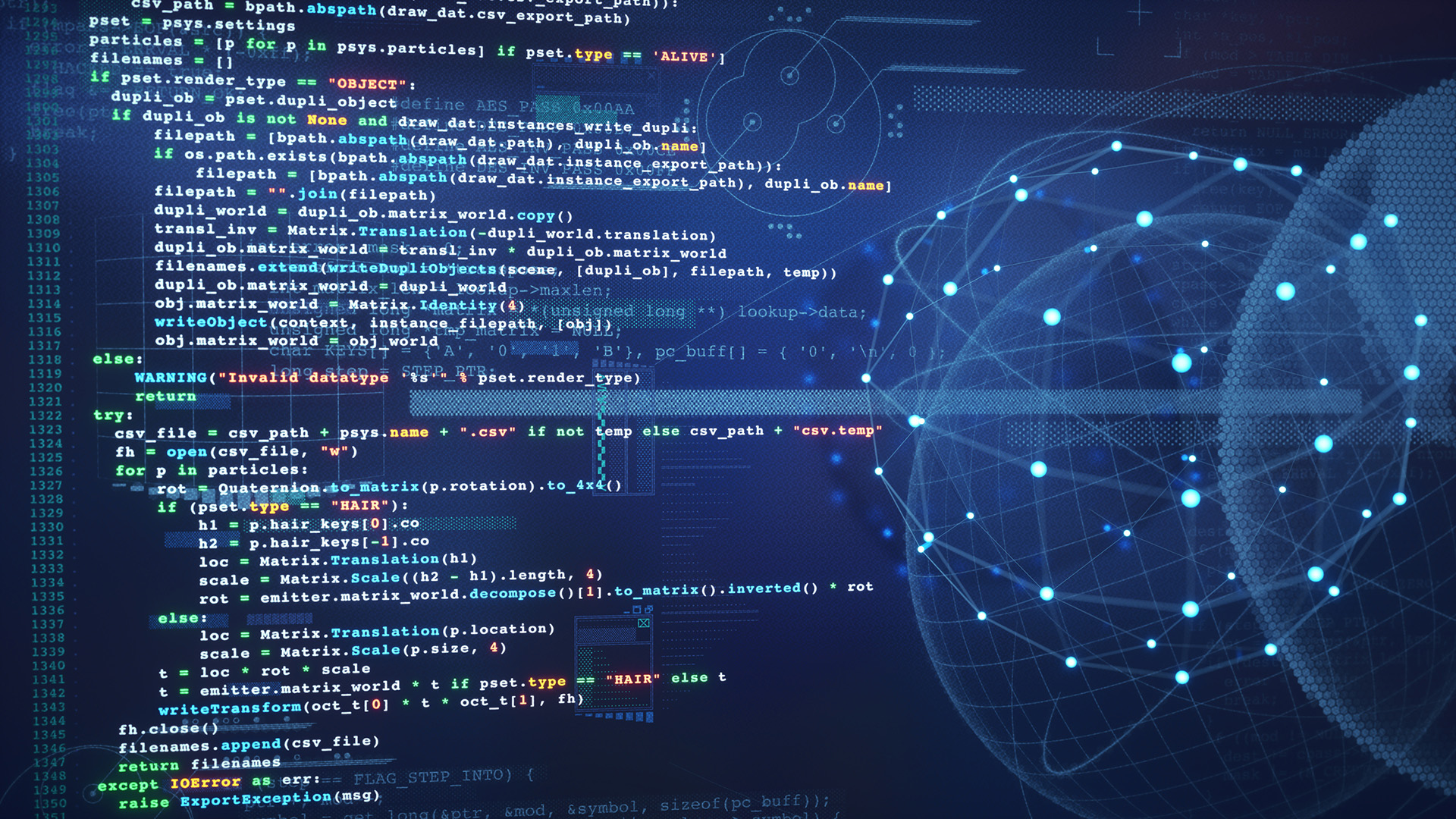How AI coding is transforming the IT industry in 2025
IT roles are shifting to accommodate AI coding – and organizations are transforming how they build, test, and deploy products


Sign up today and you will receive a free copy of our Future Focus 2025 report - the leading guidance on AI, cybersecurity and other IT challenges as per 700+ senior executives
You are now subscribed
Your newsletter sign-up was successful
In a recent conversation with Meta’s Mark Zuckerberg, Satya Nadella, CEO at Microsoft, revealed that some of the company’s coding projects are now exclusively “written by software”. The chief executive explained that 20-30% of the code in Microsoft’s repositories is now AI-generated.
This is a stark reminder of the pace at which AI tools are being adopted within the IT industry. For more evidence, look to Stack Overflow's 2024 Developer Survey, which found the number of developers using AI tools has increased from 44% to 62% in the last 12 months alone.
“We saw early on that AI could deliver economies of scale for cybersecurity professionals that could not otherwise be reached,” says Gregor Stewart, VP of AI and machine learning at SentinelOne. “Specifically with coding, we have been using coding assistance for about two years, when we deployed Copilot to everyone, and offered ChatGPT to key developers.”
SentinelOne has been building AI into its products for over a decade. But it was the introduction of generative AI tools that saw widespread adoption across the company. However, whilst research shows that seven in 10 developers don’t see AI technology as a threat to their jobs, this doesn’t mean that AI tools have been universally welcomed, and in some cases it has taken time to shift opinion.
“Because we code everything from scratch, some of our most gifted developers resisted AI tools, until very recently,” Stewart tells ITPro. “There is a certain degree of human resistance to change. But now they can use agentic iteration to solve bugs they had on the "rainy day" pile and they are seeing the benefits more clearly and that resistance is drifting away. It’s a useful tool, but it’s not going to take away the need for people – it just makes those people more effective.”
AI tools can provide big benefits
Compared to other industries, where AI is being viewed with a degree of skepticism, developers see AI tools as having a more positive impact, with 84% now using AI tools according to recent Stack Overflow data. Another recent study, by Clutch, found 53% of senior software developers believe LLMs can code better than humans.
Using AI tools to improve delivery times and efficiency has played a significant part in this widespread adoption, with 81% saying that improved productivity is the biggest benefit that AI tools can provide in Stack Overflow's research.
Sign up today and you will receive a free copy of our Future Focus 2025 report - the leading guidance on AI, cybersecurity and other IT challenges as per 700+ senior executives
“Most developers are still spending days on manual toil, as they are under immense pressure to deliver faster, maintain security, ensure performance, and uphold quality,” explains Martin Reynolds, Field CTO at Harness, a platform that allows engineers and DevOps to build, test, deploy, and verify software. “Incorporating AI has changed software development for good, dramatically reducing the burden on developers by automating repetitive tasks, streamlining workflows, and freeing developers to focus on creative problem-solving and innovation.”
Ciena is one of the world’s biggest optical networking and software companies, employing more than 8,500 people. It recently introduced AI into its coding ecosystem with three goals: to save time; reduce the amount of repetitive, manual tasks that developers had to do; and to improve software quality.
“We introduced AI into coding in mid-2024 and have been ramping up its use ever since,” says John McKinnon, VP of software engineering at Ciena. “We want the focus to be on creativity and innovation, not hours spent on code checks. We introduced AI into coding workflows to ultimately make our developers’ lives easier. AI-supported coding helps them produce work faster by providing higher-quality code checks – for instance, it can quickly tell them what a certain function does, or summarize a code.”
Despite these benefits, almost half (46%) of Stack Overflow respondents stated they do not trust the accuracy of AI-generated code. Meanwhile, 61.7% said they often have security or ethical concerns about code generated by AI tools.
This is one reason Kirill Skrygan, CEO at JetBrains, recently told ITPro that developers shouldn't fear AI job losses, noting humans will still be needed to evaluate code quality.
AI can also play a role in testing – here organizations will have to decide the balance of human to machine.
Passing the test with AI coding
According to Capgemini’s World Quality Report 2024, a global survey of 1,775 IT and business executives, 62% of respondents said that a top benefit of using generative AI in quality engineering (QE) was to reduce testing resources. And testing has become one of the most cited benefits of AI amongst developers.
“Increased test coverage is a major benefit,” Stewart says. “Testing is often a thankless task and with all the will in the world, it’s impossible to test everything – but with AI, we can. This gives us more confidence that bugs will be caught, but it also frees our team up from boring, repetitive tasks when they could be focused on something more important.”
As well as helping developers identify errors in code, the nature of generative AI means that it can also provide a clear explanation, or in some cases pass problems over to AI agents, which can remedy problems automatically, without the need for human input.
“First time code quality has improved significantly, and when we do encounter bugs we are able to address them more efficiently, as AI gives us a clear explanation of the problem and often the ability to solve the issue automatically,” says Stewart.
In conversation with ITPro, Skrygan also praised the potential for AI to speed up prototyping and code completion. But recent data from Model Evaluation & Threat Research (METR) also showed that AI can have a detrimental effect on the speed at which fixes or new features are delivered.
Its controlled trial, involving 16 experienced developers, found they took 19% more time to solve bugs or add new code when using AI, with the devs accepting less than 44% of AI code suggestions.
This is another reason businesses will have to carefully assess if AI belongs in their workflow. Developers may save time using AI in the long run, provided the time spent rewriting AI code is reduced.
AI tools aren’t just for devs
The Nash Squared Digital Leadership Report reveals the growing need for AI-focused developers, with 65% of digital leaders saying that they would choose an AI-enabled software developer with just two years of experience, over one with a five-year career, but no AI skills. And it isn’t just product developers that need to step up.
“The most exciting frontier is that AI can work across every part of the product lifecycle, not just engineering,” says Frankie Woodhead, chief product and technology officer at Thrive. “When AI can be used in the design, testing, support and platform phases, contextually and securely, it will change how cross-functional teams work together.”
By employing AI tools on tasks such as creating or testing code, developers have gained the ability to shift their focus away from monotonous tasks such as manual code-checking. But now, and in the future, the human element they provide is still going to be of vital importance.
“It is critical to have strong human oversight and enhanced quality controls to mitigate new risks introduced by AI. Software engineers will remain integral in reviewing and debugging AI-written code to ensure quality and functionality,” concludes Reynolds.

Dan Oliver is a writer and B2B content marketing specialist with years of experience in the field. In addition to his work for ITPro, he has written for brands including TechRadar, T3 magazine, and The Sunday Times.
-
 How the rise of the AI ‘agent boss’ is reshaping accountability in IT
How the rise of the AI ‘agent boss’ is reshaping accountability in ITIn-depth As IT companies deploy more autonomous AI tools and agents, the task of managing them is becoming more concentrated and throwing role responsibilities into doubt
-
 Hackers are pouncing on enterprise weak spots as AI expands attack surfaces
Hackers are pouncing on enterprise weak spots as AI expands attack surfacesNews Potent new malware strains, faster attack times, and the rise of shadow AI are causing havoc